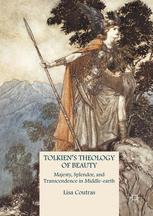

Most ebook files are in PDF format, so you can easily read them using various software such as Foxit Reader or directly on the Google Chrome browser.
Some ebook files are released by publishers in other formats such as .awz, .mobi, .epub, .fb2, etc. You may need to install specific software to read these formats on mobile/PC, such as Calibre.
Please read the tutorial at this link: https://ebookbell.com/faq
We offer FREE conversion to the popular formats you request; however, this may take some time. Therefore, right after payment, please email us, and we will try to provide the service as quickly as possible.
For some exceptional file formats or broken links (if any), please refrain from opening any disputes. Instead, email us first, and we will try to assist within a maximum of 6 hours.
EbookBell Team

4.7
96 reviews In this book, Lisa Coutras explores the structure and complexity of J.R.R. Tolkien’s narrative theology, synthesizing his Christian worldview with his creative imagination. She illustrates how, within the framework of a theological aesthetics, transcendental beauty is the unifying principle that integrates all aspects of Tolkien’s writing, from pagan despair to Christian joy.
J.R.R. Tolkien’s Christianity is often held in an unsteady tension with the pagan despair of his mythic world. Some critics portray these as incompatible, while Christian analysis tends to oversimplify the presence of religious symbolism. This polarity of opinion testifies to the need for a unifying interpretive lens. The fact that Tolkien saw his own writing as “religious” and “Catholic,” yet was preoccupied with pagan mythology, nature, language, and evil, suggests that these areas were wholly integrated with his Christian worldview. Tolkien’s Theology of Beauty examines six structural elements, demonstrating that the author’s Christianity is deeply embedded in the narrative framework of his creative imagination.